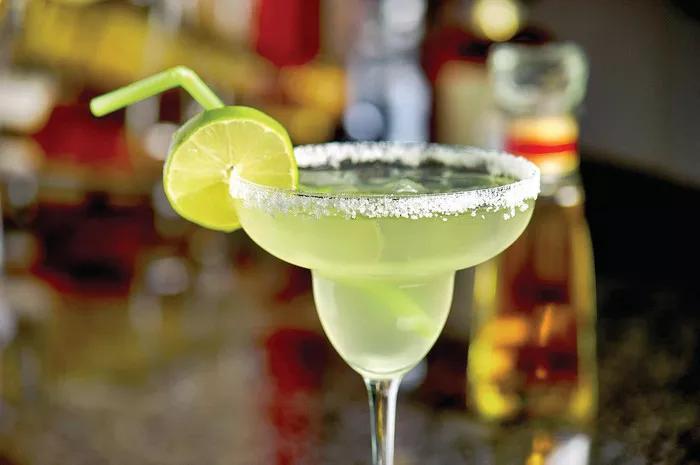In today’s society, socializing often involves the consumption of alcohol. Whether it’s a night out with friends, a dinner party, or a celebration, the presence of cocktails is almost ubiquitous. However, amidst the enjoyment and conviviality, a question often arises: Is two cocktails one night too many? This query lies at the heart of a broader discussion on moderate alcohol consumption and its potential impacts on health and well-being. In this article, we delve into the nuances of this question, examining what constitutes moderate drinking, the effects of alcohol on the body and mind, and considerations for responsible consumption.
Defining Moderate Drinking
Before delving into whether two cocktails in one night constitute excessive drinking, it’s essential to establish what constitutes moderate alcohol consumption. The Dietary Guidelines for Americans define moderate drinking as up to one drink per day for women and up to two drinks per day for men. However, this guideline can vary depending on individual factors such as age, weight, metabolism, and overall health. Thus, the answer to whether two cocktails in one night is too many depends on various factors, including the individual’s tolerance and sensitivity to alcohol.
Understanding Alcohol’s Effects
Alcohol affects the body and mind in various ways, depending on factors such as the amount consumed, frequency of consumption, and individual differences. At lower levels, alcohol can produce feelings of relaxation and euphoria, making it a popular social lubricant. However, as consumption increases, so do the risks. Excessive alcohol intake can impair judgment, coordination, and cognitive function, leading to accidents, injuries, and risky behaviors. Moreover, chronic alcohol abuse can contribute to a myriad of health problems, including liver disease, cardiovascular issues, and mental health disorders.
The Impact of Two Cocktails
Returning to the central question, let’s examine whether two cocktails in one night constitute excessive drinking. Two cocktails typically equate to around two standard drinks, depending on factors such as the type of alcohol and the size of the servings. For many individuals, consuming two cocktails in a single evening may not pose significant risks, especially if done occasionally and responsibly. However, it’s crucial to recognize that even moderate alcohol consumption can have short-term effects such as impaired coordination and judgment. Furthermore, for those with certain medical conditions or taking medications that interact with alcohol, even moderate drinking may be ill-advised.
Factors to Consider
When evaluating whether two cocktails in one night is too many, it’s essential to consider various factors beyond just the number of drinks consumed. One critical aspect is the context in which the drinking occurs. For instance, consuming two cocktails over the course of an entire evening at a social gathering may be different from downing them rapidly in quick succession. The rate of consumption can significantly impact how the body processes alcohol and its effects on cognition and behavior. Additionally, factors such as hydration, food intake, and individual tolerance levels play a role in determining the effects of alcohol on an individual.
Risk and Responsibility
While moderate alcohol consumption may have some potential health benefits, such as a reduced risk of heart disease, it’s essential to balance these with the associated risks. For some individuals, even two cocktails in one night may push the boundaries of moderation, particularly if they have a low tolerance for alcohol or are prone to binge drinking. Moreover, alcohol consumption can have broader social and economic implications, including impacts on relationships, work performance, and overall quality of life. Therefore, practicing responsible drinking habits, such as pacing oneself, knowing one’s limits, and avoiding peer pressure, is paramount to mitigating these risks.
Navigating Social Pressures
In many social settings, alcohol often plays a central role, and abstaining or limiting one’s intake can sometimes be met with scrutiny or peer pressure. However, it’s essential to prioritize personal health and well-being over social expectations. Asserting one’s boundaries and making informed choices about alcohol consumption can empower individuals to maintain control over their drinking habits. Additionally, seeking out alternative activities or venues that offer non-alcoholic options can help reduce reliance on alcohol as the primary means of socializing.
Potential Consequences of Excessive Drinking
For those who regularly exceed moderate drinking limits, the consequences can be severe. Chronic alcohol abuse can lead to addiction, dependence, and a range of physical and mental health issues. Moreover, excessive drinking can strain relationships, impact professional aspirations, and contribute to legal problems such as DUIs or public intoxication charges. Recognizing the signs of alcohol misuse and seeking support from healthcare professionals or support groups is essential for those struggling to maintain healthy drinking habits.
The Role of Education and Awareness
Promoting education and awareness surrounding alcohol consumption is crucial in fostering a culture of responsible drinking. Providing accurate information about the risks and benefits of alcohol, as well as strategies for harm reduction, can empower individuals to make informed choices about their drinking habits. Moreover, addressing societal attitudes and norms regarding alcohol use, including challenging stereotypes and stigmas associated with abstaining or limiting consumption, can help create a more inclusive and supportive environment for all individuals, regardless of their relationship with alcohol.
Conclusion
In conclusion, the question of whether two cocktails in one night is too many is complex and multifaceted. While moderate alcohol consumption may have some potential health benefits, it’s essential to balance these with the associated risks and consider individual factors such as tolerance, context, and overall well-being. Practicing responsible drinking habits, assertively setting boundaries, and seeking support when needed are crucial steps in maintaining a healthy relationship with alcohol. By promoting education, awareness, and a culture of moderation, we can strive towards a society where socializing and alcohol consumption coexist harmoniously while prioritizing health and safety above all else.


